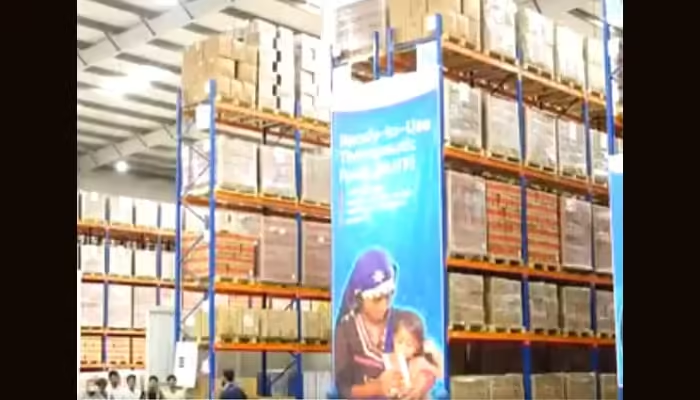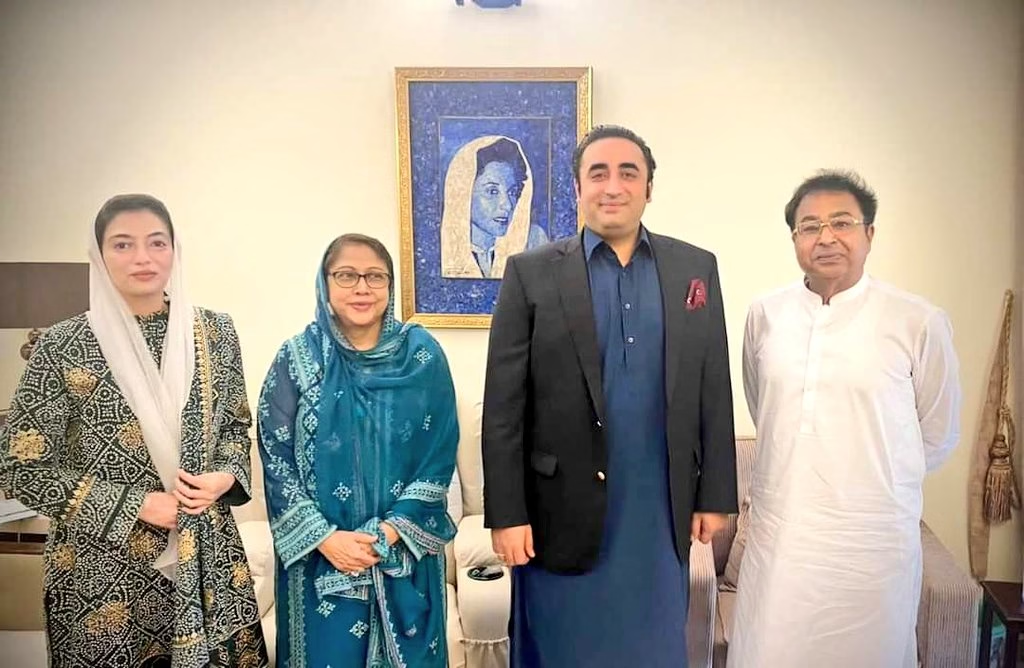In a significant humanitarian gesture, the U.S. government has donated 486 metric tons of specialized food aid to support malnourished children in the provinces of Sindh and Balochistan, Pakistan. The handover ceremony took place at Port Qasim, Karachi, where U.S. Ambassador Donald Bloom, Sindh Chief Minister Syed Murad Ali Shah, and UNICEF Pakistan Country Director Abdullah Fazil were present. This event underscores the enduring friendship between Pakistan and the United States and their shared commitment to addressing the pressing issue of child malnutrition.
The Humanitarian Aid
The food aid, comprising highly nutritious supplements specifically designed to combat malnutrition, is a lifeline for thousands of vulnerable children in Sindh and Balochistan. These regions have long struggled with high rates of malnutrition, exacerbated by poverty, lack of access to quality healthcare, and, more recently, the devastating effects of climate change. The 486 metric tons of food will be distributed through UNICEF’s established networks, ensuring that the aid reaches the children who need it most.
Malnutrition is a severe issue in Pakistan, particularly in the southern provinces where economic disparities and poor infrastructure contribute to the problem. Malnourished children face a higher risk of illness, stunted growth, and developmental delays, which can have long-lasting effects on their overall well-being and future potential. The food supplements provided by the U.S. government are rich in essential vitamins and minerals, designed to boost the health and development of these children, offering them a chance at a healthier future.
Strengthening Pakistan-U.S. Relations
During the ceremony, U.S. Ambassador Donald Bloom emphasized that the donation was a testament to the strong and enduring friendship between the United States and Pakistan. He highlighted the importance of collaborative efforts in addressing global challenges, including malnutrition. Ambassador Bloom’s words resonated with the broader theme of international cooperation and the shared responsibility of nations to support one another in times of need.
“This event is a proof of the friendship between Pakistan and America,” Ambassador Bloom remarked. His statement reflects the long-standing diplomatic and humanitarian relationship between the two countries, which has seen collaboration in various sectors, including health, education, and disaster relief. The U.S. has been a consistent partner in Pakistan’s development journey, providing aid and technical assistance to help the country overcome its challenges.
Sindh Government’s Commitment to Child Welfare
Sindh Chief Minister Syed Murad Ali Shah expressed his gratitude to the U.S. government and UNICEF for their continued support in combating malnutrition among children in Pakistan. He acknowledged the severity of the malnutrition crisis and reiterated his government’s commitment to improving the health and well-being of the province’s children.
“Children in Pakistan are suffering from malnutrition, and UNICEF has given full support to address this,” said Chief Minister Shah. He stressed the importance of such international partnerships in supplementing the government’s efforts to tackle the issue. The Sindh government has been working on various initiatives to improve child health, but challenges remain, particularly in remote and underserved areas. The support from international partners like the U.S. and UNICEF is crucial in filling the gaps and ensuring that no child is left behind.
UNICEF’s Role in Combating Malnutrition
UNICEF Pakistan, under the leadership of Country Director Abdullah Fazil, has been at the forefront of efforts to combat malnutrition in the country. The organization plays a critical role in implementing nutrition programs, providing technical support, and ensuring that food aid reaches the most vulnerable populations. The food donation from the U.S. government is a significant boost to UNICEF’s ongoing efforts in Sindh and Balochistan.
Abdullah Fazil emphasized the importance of continued collaboration between the government, international organizations, and donors in addressing child malnutrition. He noted that while progress has been made, much work remains to be done to eradicate malnutrition and improve child health outcomes in Pakistan. The partnership between UNICEF, the U.S. government, and local authorities is a model of how coordinated efforts can lead to meaningful change.
The donation of 486 metric tons of food aid by the U.S. government to UNICEF Pakistan is a vital intervention that will help alleviate the suffering of malnourished children in Sindh and Balochistan. It is also a powerful symbol of the enduring friendship between Pakistan and the United States and their shared commitment to addressing global challenges. As these children receive the nourishment they need, this partnership serves as a reminder that when nations come together in the spirit of cooperation, they can make a significant impact on the lives of the most vulnerable.
The presence of key figures such as U.S. Ambassador Donald Bloom, Sindh Chief Minister Syed Murad Ali Shah, and UNICEF’s Abdullah Fazil at the handover ceremony underscores the importance of this initiative. It also highlights the ongoing need for international support and collaboration in addressing critical issues like child malnutrition, which continue to affect millions of lives in Pakistan and beyond.



